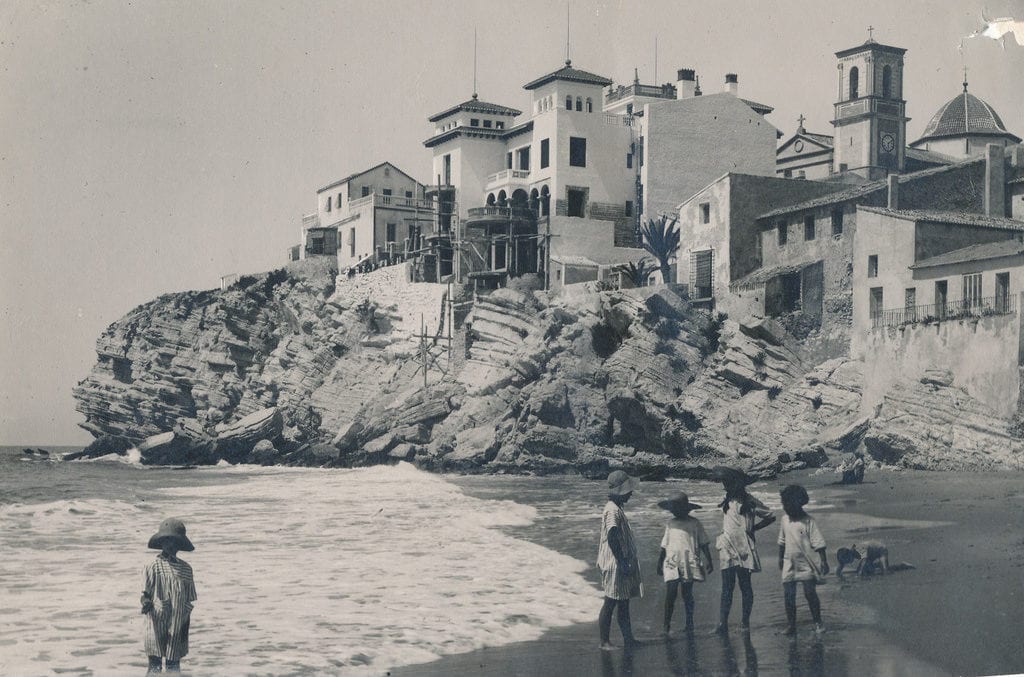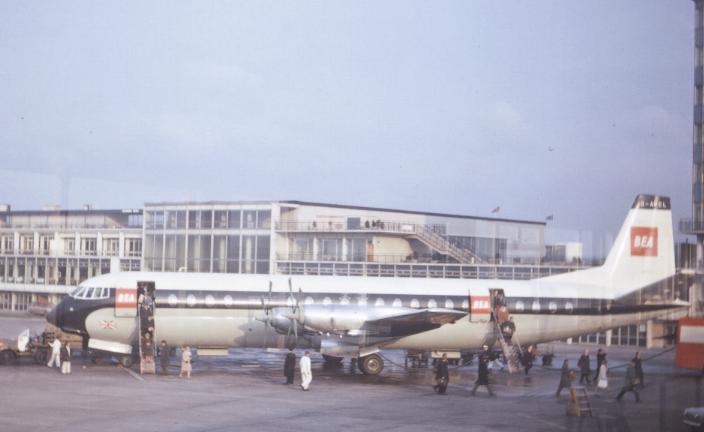Travel has always been in my blood, I grew up in a typical brash, northern England holiday resort and spent my youth working summer jobs in tacky gift stores, amusement parks and peddling fake designer good to tourists who would flock to our town from Easter to the end of summer.
As a child we travelled regularly to Spain and I would enjoy time with my parents pouring over travel brochures deciding where we would spend our summer vacation.
In those days (in the 1970s) to actually travel outside of the UK was considered adventurous, most of my friends were content with a trip to a caravan in Wales or a coach trip to the Lake District. Although not wealthy, my parents, who ran their own business, wanted to travel to new places and preferably not run into too many of their fellow Brits by choosing lesser known parts of Spain to enjoy some sun and relaxation.
Over the decades, much has changed, exotic destinations and far flung countries are the aspirations of most 21st century travellers, with the focus on the new and exciting or the desire to see as much of the planet in our lifetime as possible.
It’s hard to believe that only two generations ago our parents and grandparents were testing the waters of the Mediterranean, cautiously sipping their first sangria or boarding an aeroplane for the first time in their lives.
Tales in the pub on their return of ‘chewy onion rings’ (calamari) and other ‘foreign muck’. Not to mention how “that Gringo waiter was chatting up my missus”, spoke of mysterious places with days under a hot sun and sultry nights spent sampling the local brew.
As a child in the 1970s I enjoyed my first package holiday with my parents, to then-little known island of Ibiza, when San Antonio was a sleepy village and the club scene hadn’t been invented.
I remember spending every holiday stalking the poor holiday rep, in awe of her uniform, glamour and knowledge.
By the time I turned 21 I was wearing my own uniform in the Spanish resort of Torremolinos and there began my long career in the travel industry.
Since then I progressed to managing numerous resorts before becoming long-haul cabin crew for British Airways. After more than a decade I hung up my wings and after a brief hiatus from the travel industry I became an independent travel agent and now have the pleasure of helping people make their holiday dreams come true.
The great British package holiday will celebrate its 75th year in 2025. How overseas travel has moved on since those heady days of glossy travel brochures depicting suntanned holidaymakers and tag-lines promising ‘fun in the sun’. Here we will take a look at the rise and fall of the British travel industry.
Where it began
Vladimir Raitz, founder of the original Horizon Holidays organised the first mass package tour in 1950.
The Russian entrepreneur filled a Dakota aircraft with members of the public and a six-hour flight took the excited holidaymakers to Corsica. There they enjoyed a week under canvas in old US Army tents on the Club Olympique camp site. The package holiday was born.
Along with this newly-discovered thirst for travel, sleepy coastal towns in Spain and Greece transformed into bustling holiday resorts.
Infamously, in 1951, Pedro Zaragoza, former mayor of a tuna-fishing village in Spain, called Benidorm, met with General Franco. He put forward a plan to build a series of skyscrapers along the coastline to capitalise on the trend of Brits bitten by the travel bug.
The plan was agreed and the birth of Benidorm as we know it now was born.
Zaragoza was later threatened with excommunication from the Catholic Church as he became the first mayor to allow bikinis to be worn.
While people may argue that towns such as Benidorm, Torremolinos and Tossa de Mar were ruined by mass tourism and those that came with it, many a millionaire was made as savvy land owners turned their olive fields into hotels and many of those families continue to reap the rewards.

Popularity grew
The popularity of the package holiday surged into the 1960s 70s and 80s with new tour operators and charter airlines springing up every year. Travellers began to demand more exotic destinations and package tours branched out as far as the US and the Caribbean.
Tour operators competed aggressively on pricing and introduced their own speciality brands including winter holidays tailored for the over 55s and summer packages for the youth market.
Club 18-30 launched in the 1970s with the slogan ‘your granny wouldn’t like it’. The ground-breaking company fast became the choice for young people going on holiday without their parents for the first time. Stories of drunken debauchery, arrests and sex on the beach were rife. The later slogan ‘Beaver Espana’ generated a record number of complaints to the advertising standards agency, but the brand continues today.
The turning point
In the 1990s, as the internet became a must-have in every home, holidaymakers became more adventurous. Travellers began shunning the air/hotel package for independent travel to off-the-beaten-track locations. Preferring to purchase flights and accommodation separately from a plethora of travel websites. It seemed the turning point for the package holiday had arrived.

A number of tour operators fell by the wayside while others merged and changed their business model to include luxury all-inclusive holidays and leaving behind the so-called bucket and spade brigade.
In recent years, especially after the COVID19 pandemic the package holiday has seen a big resurgence.
Experts put the change in trend down to terrorist related incidents in places such as Tunisia and Egypt and the instability of certain long-haul destination countries.
People feel more secure with a ABTA or ATOL bonded company in the knowledge that should anything go wrong either before they travel or during their holiday, they will have the support of a team of co-ordinators to help alleviate any difficulties.
Market leaders Jet2 Holidays and TUI both increased their capacity to popular ‘old-school’ resorts such as the Spanish Costas and Spanish and Greek islands as the demand increased, as well as branching out into long-haul destinations to give customers a wider choice.
Budget airline EasyJet also launched a package holiday brochure successfully grabbing market share from its two big rivals.
While the package holiday has moved on from its heyday, one thing is for sure, the wander lust of the human race will always remain.
Another casualty in 2019
In late 2019 Thomas Cook airline and holiday company fell into administration, sending shockwaves through the industry, leaving thousands out of work and thousands of holidaymakers stranded in destinations throughout the world.
The oldest name in UK tourism had failed to survive the cutthroat world of travel in the new millennium.
A big shock to the industry but what was to come would shake world tourism to its very core.
Covid-19 – its effect on the travel industry
I will not enter into too much detail about Covid-19 here but below is a brief timeline of how the global pandemic impacted travel and tourism throughout the world.
On December 31, 2019, China reported a growing cluster of cases of pneumonia in the city of Wuhan, this was later identified as a novel Coronavirus.
Initially the World Health Organisation (WHO) issued a statement to say there was no evidence of human to human transmission of the virus – now known as Covid-19.
By the end of January 2020, some 18 countries had reported cases of the virus. Many countries in south east Asia were locking down their borders and countries throughout the world were banning flights from China.
By mid-March dozens of governments were enforcing lockdown measures and world travel pretty much came to a standstill.
The cruise industry was particularly hard hit after numerous cruise lines made the headlines following reports of dozens of Covid-10 outbreaks on ships and passengers stranded as countries refused to allow disembarkation.
By June, as numbers of cases began to drop, countries relaxed their lockdown measures and the industry tentatively breathed a sigh of relief, but by mid-July it appeared that a second wave was hitting various countries, particularly in Europe and governments took drastic measures of imposing mandatory quarantine on people travelling to and from certain countries.
In mid-July, family-owned cruise line MSC, in a ground-breaking move for the industry, announced that its ship, Grandiosa, would set sail on the first cruise of a major cruise line post-Covid restrictions, on July 19 from Genoa, Italy.
The company launched a range of measures, implemented to keep staff and passengers safe.
Travel has now thankfully returned to normal with no testing required and no proof of vaccination needed to be shown to enter a country. Many airlines, cruise lines and holiday companies fell by the wayside during this time, yet another blow to the turbulent travel industry.
Great reasons to book with a travel agent
While for some, it may be easy to book all elements of your holiday online but whether you are a seasoned traveller and an internet whizz, or a technophobe who prefers to leave the work to someone else, there are many reasons to book with an independent travel agent.
Firstly, large online booking sites will not give you a personal service and if things go wrong it is almost impossible to get to speak to an actual human being.
Most bookings or packages with an independent travel agent will include financial protection of ABTA or the Travel Trust Association and gave the backing of ATOL should anything go wrong or one of the suppliers fails financially.
An independent travel agent is likley to have lots of knowledge on different areas and will be happy to pass on insider tips and suggestions to ensure you book the perfect holiday.
Finally by booking with an independent travel agent you are supporting someones’s small business, your support will be very much appreciated and that adds a feel-good factor to your holiday!
You may also enjoy
-
Travel Insurance - Are You Covered?
Reasons to take out travel insurance for all your trips…
-
Carry-on luggage - avoiding baggage fees
My attempt at travelling light!
-
Happy 100 years British Airways
Britain's flag carrier celebrated its centenary in 2019.




